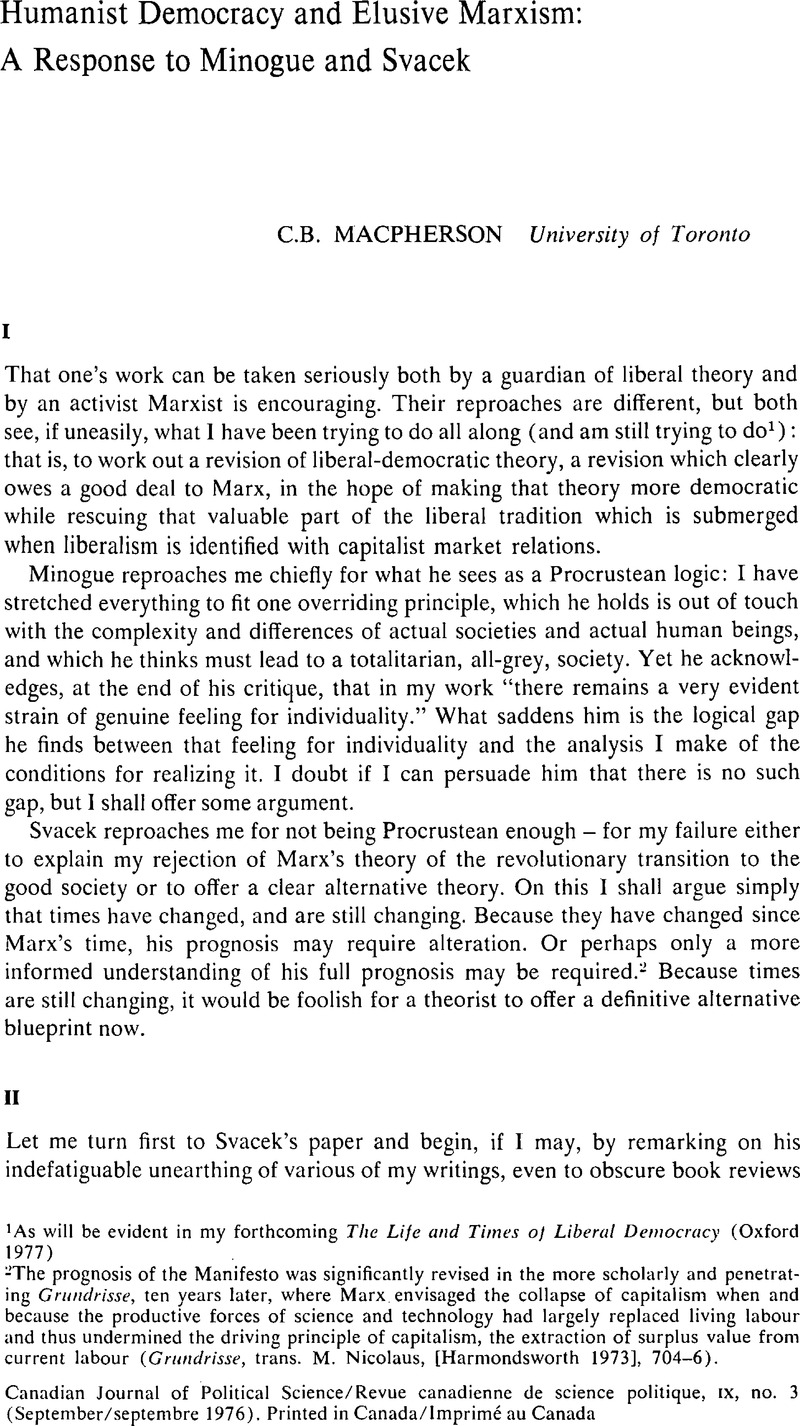Published online by Cambridge University Press: 10 November 2009

1 As will be evident in my forthcoming The Life and Times of Liberal Democracy (Oxford 1977)
2 The prognosis of the Manifesto was significantly revised in the more scholarly and penetrating Grundrisse, ten years later, where Marx envisaged the collapse of capitalism when and because the productive forces of science and technology had largely replaced living labour and thus undermined the driving principle of capitalism, the extraction of surplus value from current labour ( Grundrisse, trans. Nicolaus, M., [Harmondsworth 1973], 704–6).Google Scholar
3 I.e., his reference to the passage in the Grundrisse paralleling my argument that any existing level of development of human capacities must be measured down from a presumed full potential rather than up from some previously attained level (Svacek, notes 51 and 52)
4 Although it has been prominent in most of what I have written in the last fifteen years; cf. The Political Theory of Possessive Individualism (Oxford 1962), 56; The Real World of Democracy (Toronto 1965), 43; Democratic Theory (Oxford 1973), 10–14, 16 ff., 40–1, 64–6
5 Cf. Nicolaus, Martin, “The Unknown Marx,” New Left Review 48 (March–April 1968), 58–9Google Scholar
6 Democratic Theory, 76
7 Ibid., Essay VI, sections 2 to 4
8 Possessive Individualism, chap. 2, section 3
9 In Real World of Democracy and elsewhere
10 Democratic Theory, 74
11 Ibid., 112–13
12 Ibid., 66
13 Ibid., 42